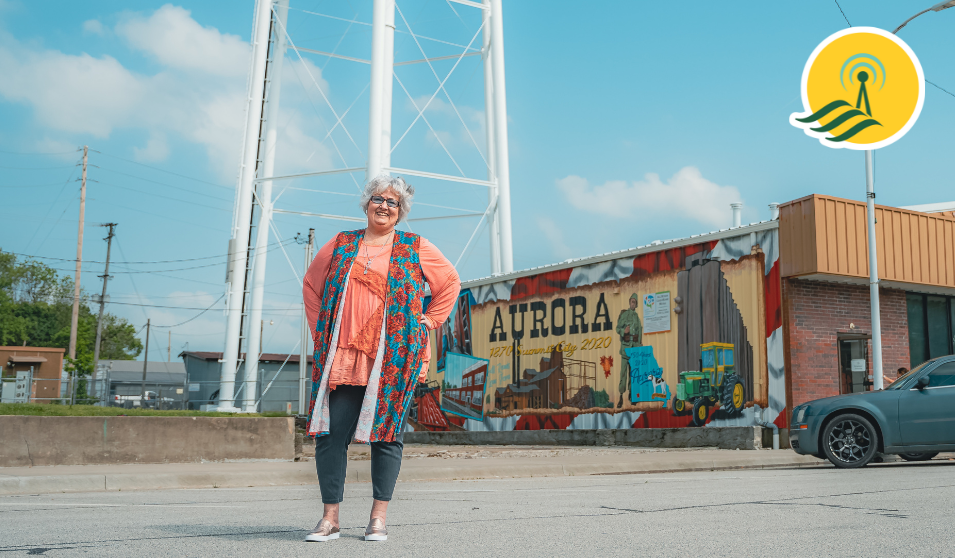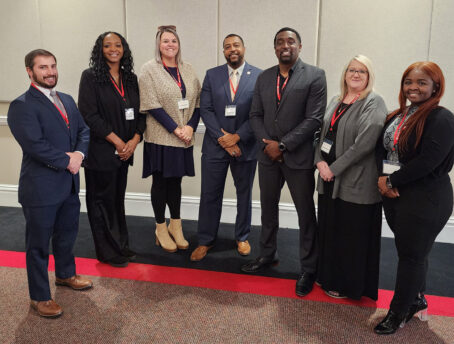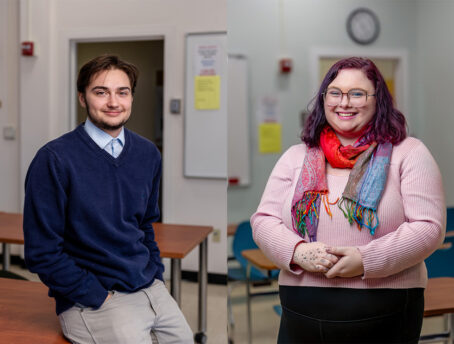Listen to the podcast here:
You can also find our podcast on Apple Podcasts, Google Podcasts and Spotify.
Hello, and welcome to the I Am A Rural Teacher Podcast, a project of Rural Schools Collaborative and the National Rural Education Association.
Supporting place-based learning in rural communities is core to the missions of RSC and the NREA, as evidenced by our shared grant work, the National Signature Project Award. Kim McCully-Mobley is a high school teacher in Aurora, Missouri, who won the 2023-2024 award to support her work creating murals with her students representing the history of her hometown.
I grew up being a hound dog, that's our mascot. We have a great history in our community, a lot of colorful people, a lot of characters, I might say. I've thought about leaving more than once, but that thought never stays very long because when I travel, I go a lot of places and meet other people, I always want to come back home. And that's one of the mantras I use for my sense of place work here, is ‘all roads lead home.’ But I think home is sometimes a place, sometimes it's a person, sometimes it's a feeling. But it's that sense of belonging that you create, when you connect with things. And that's what I try to do with teaching, that's what I try to do with my community service work, and it’s what I always tried to do with my writing.
Kim grew up in Aurora, and feels deeply connected to the history and culture of the place. In fact, Kim didn’t start out in teaching, but felt particularly drawn to the profession as a way to give back to her community:
I spent over 20 years of my life in the journalism and public relations field, and I was looking at leaving the area. I was a single mom, I needed more money, I wanted to finish my college degree. I had a lot of ideas, and I just wasn't sure I could pull it all off. And a really good friend of mine, Dr. Ron Wilken, who was the superintendent here, said, ‘Drury University is interested in operating a satellite school here in Aurora for a while, and I think you would be ideal at running it at night. You could keep your newspaper job by day.’ And I thought he was crazy, because it just seemed like a big huge task, and just adding more to my plate, but it ended up being the perfect fit for about the next 11, 11 and a half years, and I was able to finish two degrees. And I started adjunct teaching for them when an English teacher quit like the day before evening classes started one semester. So I taught for Drury for a while, in fact I still do.
And then I was at a school board meeting when a teacher wanted to get out of her contract. And the next thing I knew I applied for that job that that teacher was trying to get out of. And I applied on a Thursday, was interviewed on a Friday and was at work the following Wednesday. It has been a wonderful fit for all of the things that I love to do. I didn't have all the desire really at the time to teach, but I was a storyteller, and I was a writer, and I loved people, and I loved my community. And all of those things seemed to be the perfect fit to make a good teacher, even though I've always been a little bit of a late bloomer and I seemed to come at it backwards. It wasn’t really my plan.
In addition to including elements of place-based learning in her everyday classwork, Kim is also a National Signature Project Awardee. The National Signature Project Award is a nationwide, shared program of RSC and the NREA that awards three rural teachers a grant for a place-based education project each year. Kim received the 2023-2024 Signature Award for her project, "All Roads Lead Home Veterans Honor Garden":
We are always looking for ways to preserve, promote, and protect our community’s history, our art, our story, our memorabilia, our artifacts. And I started about, I guess, three or four years ago, planning a series of murals. And I didn't know if I could pull it off, and in the middle of planning the first one, I got really sick. And I was in the COVID Tower in Springfield, I was intubated, on a ventilator, and I heard doctors talking about me in the past tense a couple of times. It was a huge wake up call. Because all I wanted was to come back home to my family, come back home to my friends, come back home to my students.
After a few weeks, I came back to school. And one of my students, Cameron Savage, mentioned to me, he goes, ‘The next field trip we do, I would love to see Aurora through your eyes. I would like to know the history. I'd like to know about the people, I would like to know more.’ And so we were in the middle of that first mural. We finished it. We did that Aurora day field trip. And it was just so funny, because people would say, ‘Hey, where are you going? Where are you guys going today?’ Well, we're going to our own hometown. And it's because kids who lived here their whole lives, didn't know where the post office was, might not know we had a radio station, might not know where the oldest church was in town. So we used the things that were depicted in that first mural, as a way to tell stories, and sort of do a little scavenger hunt activity around the community, and do some cleanup, landscaping and service work in the same day.
So that led to the next mural. And we used it to go back to the Civil War and celebrate the Trail of Tears that comes through here and all the different pioneer-type activities that had gone on here in the late 1800s and early 1900s.
Then we have this building, and it's an old armory, it was built during World War Two. And we've been using it as an interactive classroom, museum, event center type place for several years. And we went through a process of fixing it up. So we've been doing landscaping, we've painted some murals on the outside of it.
We've celebrated two local World War One heroes; one was a gentleman by the name of Harold Leo Turner. We share him with Oklahoma. He is Native American, and he was a Medal of Honor recipient during World War One.
And we also honored a gentleman who had been a teacher, a principal, a superintendent, and a coach here after World War One, he too was highly decorated.
But people thought so much of him that I think over 700 people attended his funeral. They actually like stopped school, and then shut down the community, and let everybody go to it to celebrate him that day. So I tried to look up his funeral, I found some documentation and some signatures, the local funeral home still had it. I looked up some things about his World War One service as well as Harold Leo Turner's service. I got permission from the Medal of Honor people to share him with Missouri. Just because I felt like, here we are 100 years later. We need to know where we came from, and who paved the way for us here. So we're still in the middle of that project that we won the Signature Award for, we've completed phase one, we've got a plan for phase two, and we're building a Veterans Honor Garden.
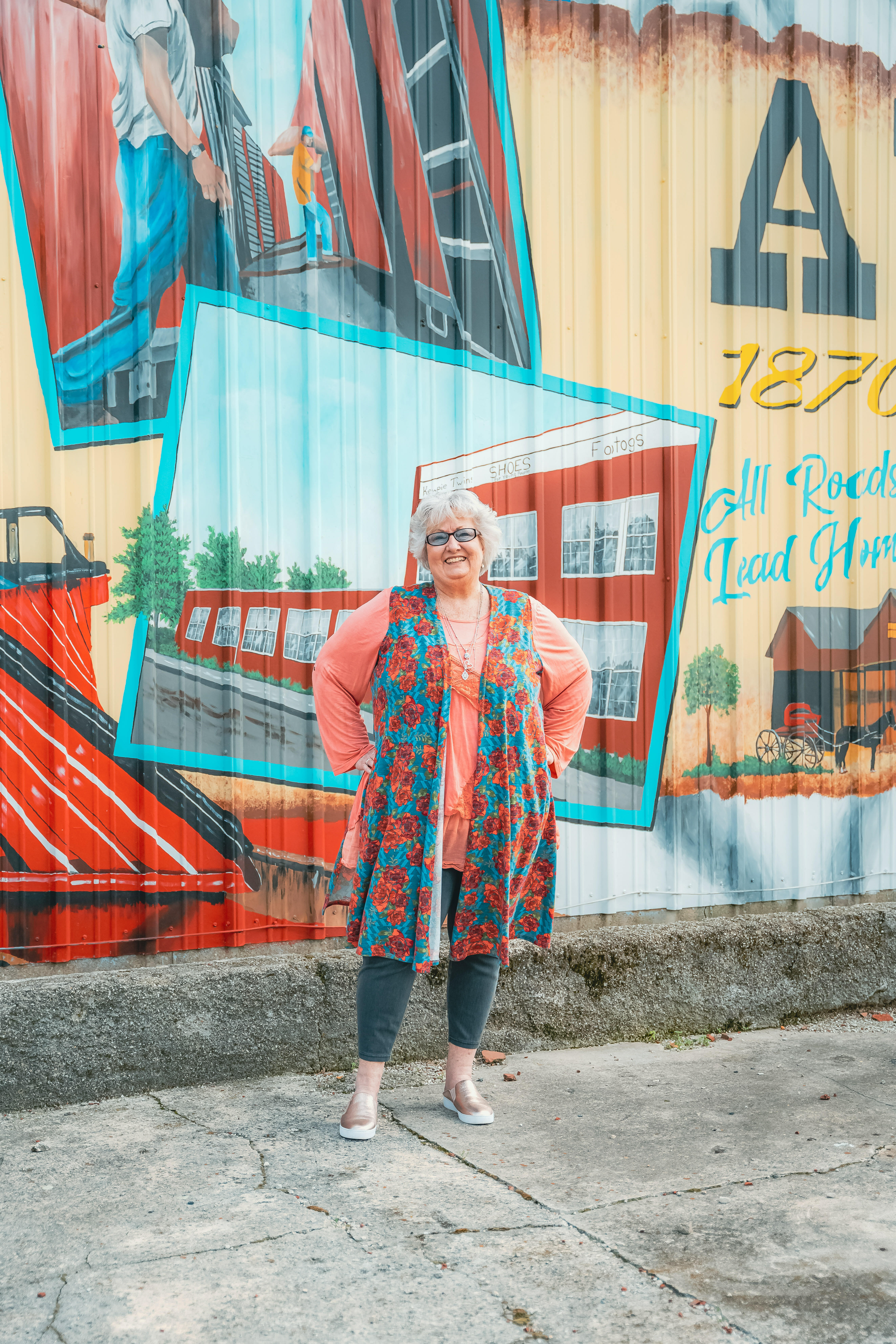
Kim shares how the project not only yields lessons for the students, but for herself:
I've never liked the whole, I don't know ‘sage on the stage' thing that teachers pretend they are, the end all, be all, know all. I like being the ‘guide on the side,’ where I coach them, and learn with them and do the work with them, and try to get the best possible work out of them that I possibly can. And with the sense of place projects we do that. They meet people, they ask questions, they create dialogue, they get off of Google, because not everything that we do can be found on the internet. You know, last year, we planted thousands of daffodils across our community in honor of the 50th anniversary of the Community Foundation. And, you know, kids come by, and they see those flowers pop up. And they realize that they froze to death that day, but they had a part in planting them. And that's my idea with sense of place work, is it creates conversations, it creates memories, it triggers feelings of I don't know, being safe, happy, and loved. And that's really what I want for my kids in the classroom. And then if other learning takes place, and I can give them some tools to be successful, I'm happy about that.
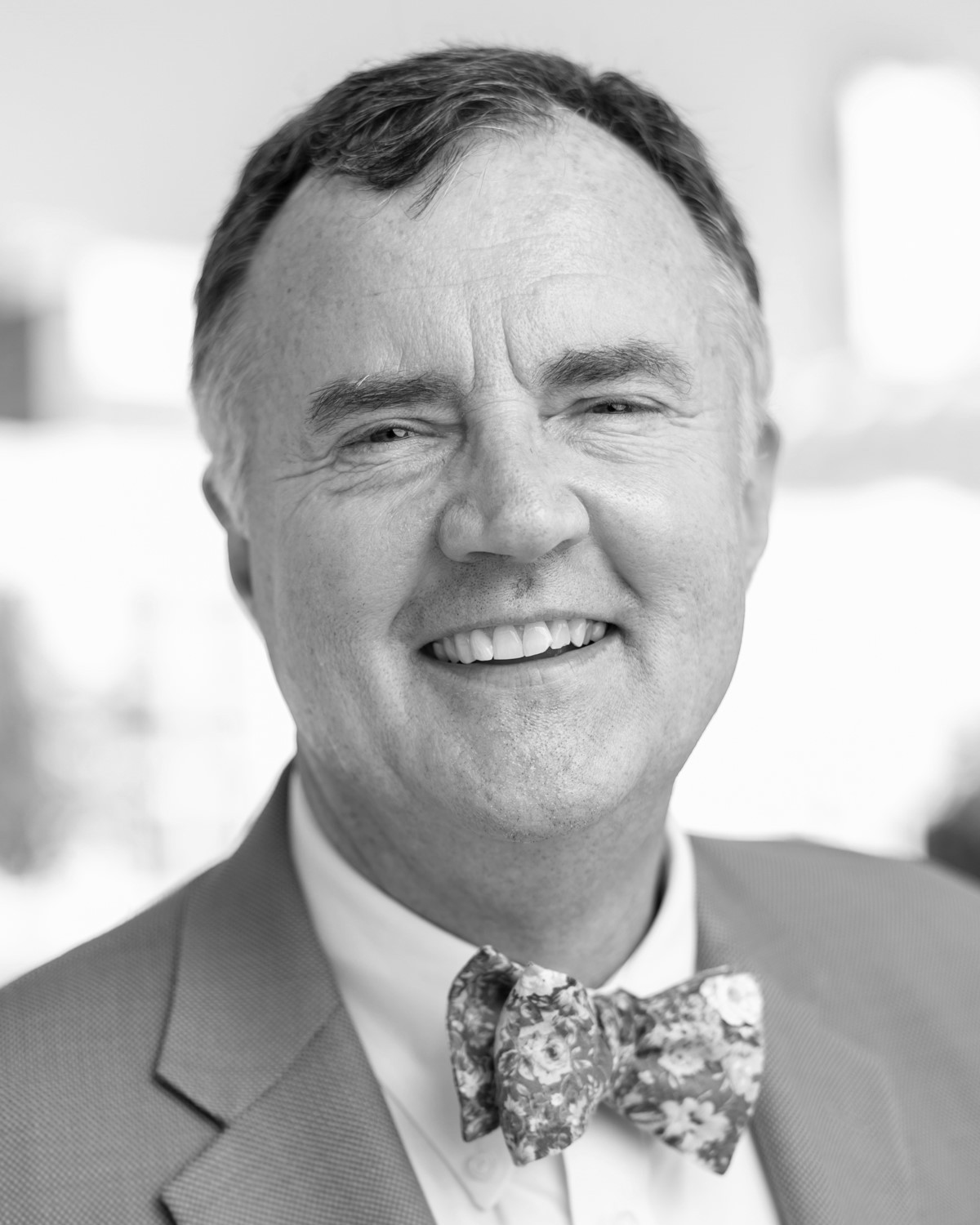
Aurora is also home to Brian Fogle, President and CEO of the Community Foundation of the Ozarks, for whom Kim and her students helped plant the daffodils. Also an RSC Board Member, Brian shared his thoughts on Kim’s work, the importance of giving to rural education, and the continued partnership between CFO and RSC:
In so many small towns, lives interweave with one another, and that's the case in Aurora. Kim's brother Randy was my mentor playing basketball. Our lives are intertwined, going back many, many decades and several generations. That is one of the great things, I think, about a small town.
It's really talking about the strengths of Aurora and promoting that. And again, she's got a captive audience with the students. I was down there maybe a month ago with some other community leaders and it was with one of her classes and she just said, ‘I want you to hear from folks who have, you know, been in a career for decades,’ and what experience and wisdom we might impart upon them. She just does it in such a multi-faceted way. I admire her as an educator, but most especially her commitment to Aurora.
We're celebrating several things this year from the Community Foundation of the Ozarks side, again 50 years from that group that started this back in 1973. The other thing is we're also celebrating 30 years of affiliates.
I think education is the best gift anybody can give. And it is the great equalizer, no matter your economic circumstance with the gift of a great education that gets you started off in life, no matter what your circumstance is. I just appreciate the great work that RSC does each and every day to, again, to elevate that and illuminate that in the lives of both public policymakers and communities in general.
Before Kim headed back out to her murals, she left us with this reflection of what ‘rural’ means to her:
When I talked about rural education to some of my students, I kept kind of getting hung up on the word. You know, I think it's a lot of things. I think in rural America, it gives us a chance to be sort of Renaissance people. We’re resourceful. We appreciate the changing of the seasons and the autumn leaves and little bit cooler temperatures. We can appreciate a good movie, a good book, a nice steak dinner on the grill, conversation, healthy dialogue, but we're also anchored in that rich history that we share here.
And it doesn't take 10 minutes to get to the country, it doesn't take five minutes to get to a back road. It doesn't take but a couple of minutes to find a historic marker or a little museum or something that connects us to maybe the Civil War, and 150 years ago, and we've got it all right here. We've got art, we've got music. It's all right here within our grasp. If we want to drive to the city, in an hour, we can be in Joplin, in an hour or we can be in Springfield. I feel like we're just at that heartbeat place where if we want something more we can find it. And if we want that quiet place that we can grow and learn and have some nice conversations, we've got that too.
Thank you for engaging with this episode of the I Am A Rural Teacher Podcast. We’d like to thank our partners at Community Foundation of the Ozarks and Missouri State University for jointly leading the Rural Schools Collaborative Missouri Ozarks Regional Hub, where Kim is based. Special thanks to Kim for telling her story about place-based education in Aurora, and to Brian for sharing his perspective, as well. I Am A Rural Teacher is a collaborative project between Rural Schools Collaborative and the National Rural Education Association.

